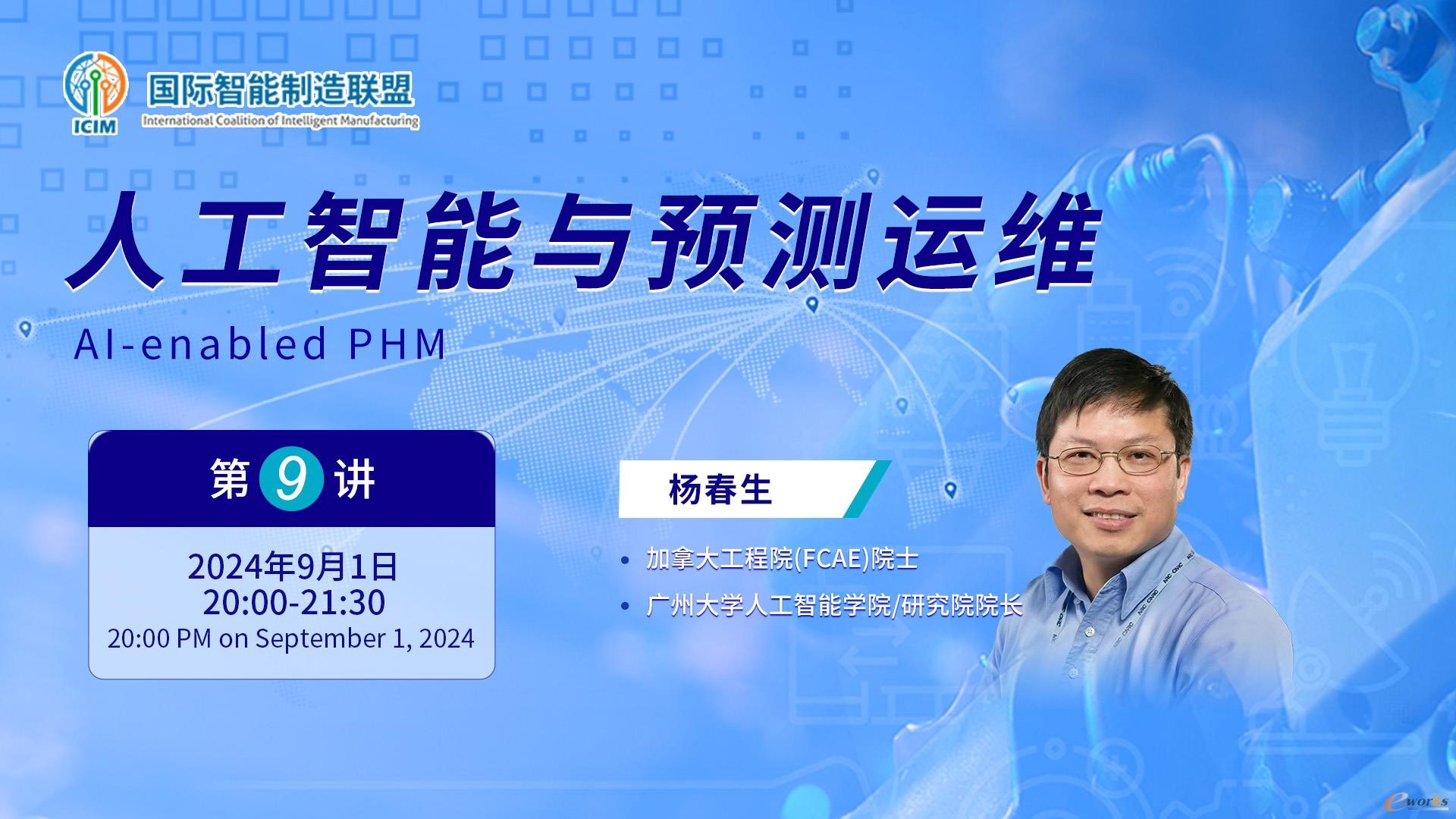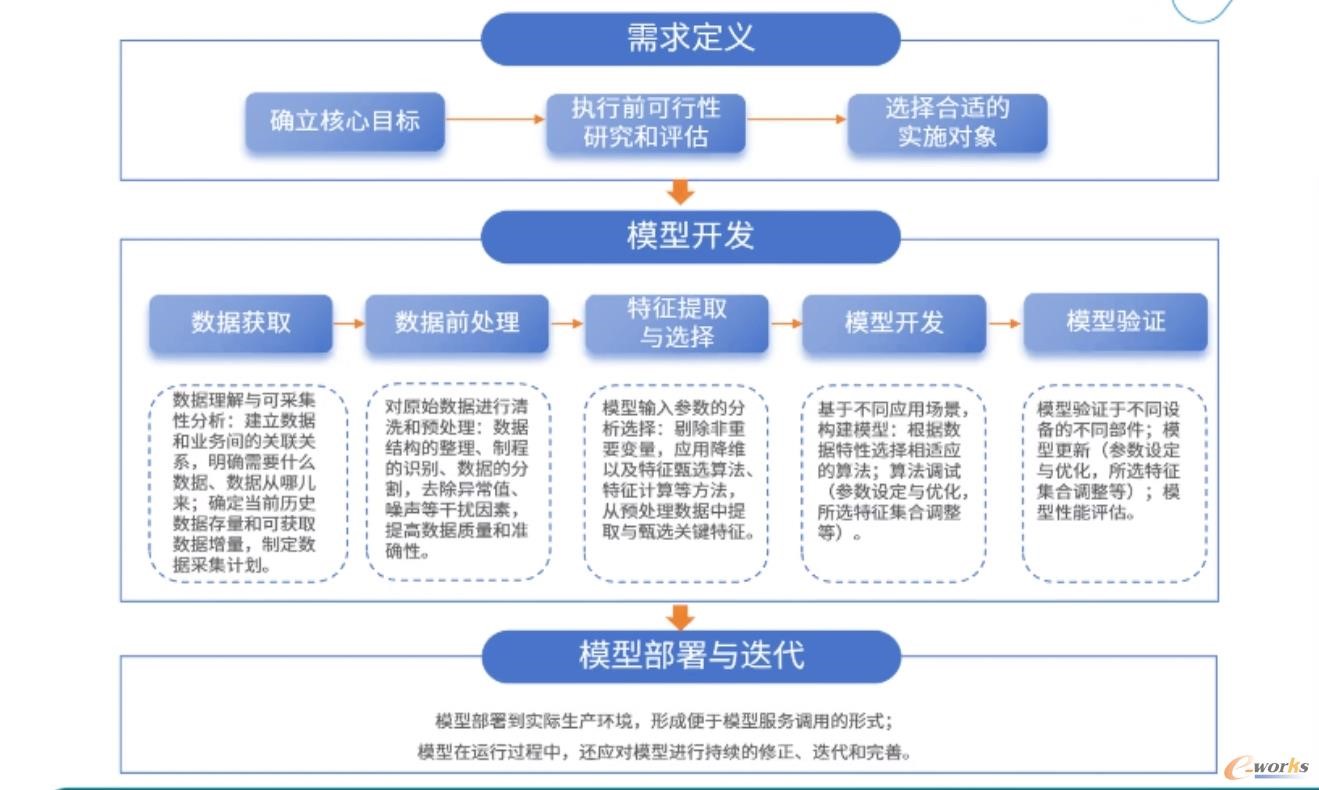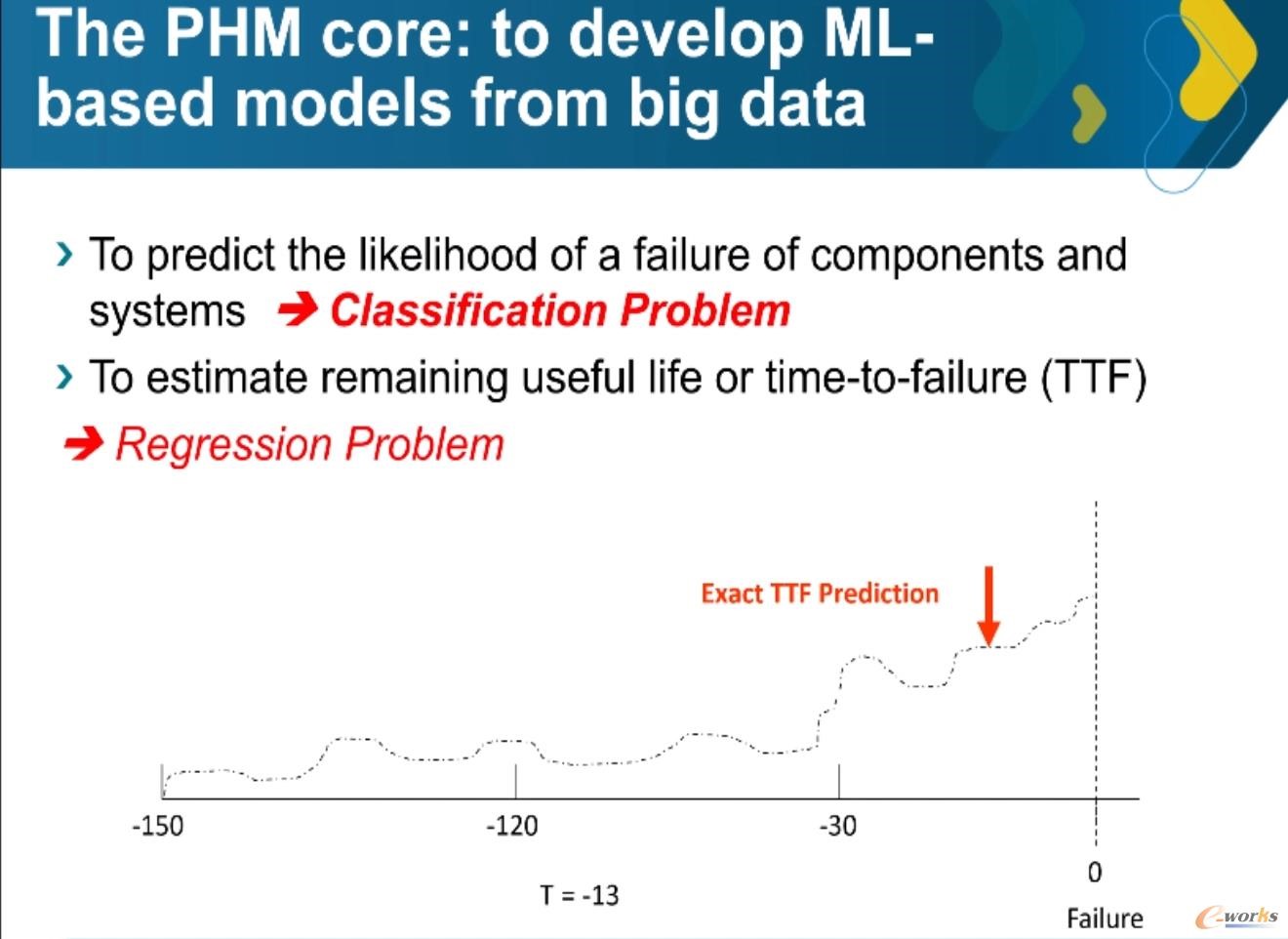The 9th session of 2024 ICIM lecture series focusing on AI-enabled PHM
On September 1st, 2024, the International Coalition of Intelligent Manufacturing (ICIM) successfully held the 9th session of the "Win-win Cooperation: Intelligent Manufacturing in a Global Vision" online lecture series. In this lecture, Professor Chunsheng Yang was specially invited to share "AI-enabled PHM". Professor Yang is a Fellow of the Canadian Academy of Engineering (FCAE) and President of the School of Artificial Intelligence, Guangzhou University. His wonderful lecture has gained wide attention and attracted over 3,000 views.

Figure 1 Professor Yang, Fellow of the Canadian Academy of Engineering (FCAE), President of the School of Artificial Intelligence, Guangzhou University
With over two decades of in-depth research in artificial intelligence (AI) and prognostic and Health Management (PHM), Professor Yang delved into the latest advancements and practical applications of predictive maintenance technology, while elaborating on how AI technology can transform and promote the effectiveness of predictive maintenance. Professor Yang said that predictive maintenance is a proactive maintenance strategy. Similar to disease prevention, it emphasizes early intervention to avoid potential problems. The core is to accurately predict the future operation status of the system, thereby implementing prevention measures to effectively avoid failures, enhance reliability of the system, and reduce maintenance costs. With the development of intelligent technologies, PHM has become an indispensable key supporting technology to ensure the stable operation of various complex systems.
Regarding the promotion of predictive maintenance, Professor Yang believes that the first thing is to define the requirements and core objectives. Specifically, to clearly define the key problem, the urgency, and the benefits. In model development stage, data engineering processing of the system will be dealt with, including data acquisition, data preprocessing, and feature extraction and selection. After these basic tasks is the model deployment and iteration to get continuous optimization.

Figure 2 Promotion strategy of PHM
In terms of uncertainty of complex systems, usually traditional physical models won’t work while data-driven approaches are much promising, Yang noted. AI technologies, especially machine learning and big data offer powerful tools for data-driven modeling. By learning and extracting useful information from large amount of data, we can build models that can accurately predict system behavior, such as PHM/LLM (pre-trained model) or to predict TTF (Time-to-Failure). One of the core of PHM technology is to develop machine learning (ML)-based models from big data. By applying these models, we can better understand the operating status of complex systems, detect potential problems in time, give early warning, and take appropriate measures according to the fault category, so as to achieve effective fault prevention.

Figure 3 Developing ML-based models from big data
Finally, Professor Yang said that the realization of PHM cannot be separated from the support of AI, there are still many challenges except technologies, such as business models as well as to weigh and balance models in practice. For example, in application process it is necessary to balance the accuracy of the model with false alarm rate, and in the promotion process, it is necessary to deeply understand user requirements and provide customized solutions.
"Is there an accurate modeling method for small sample fault data?” “How to effectively deal with the operation and maintenance challenges of multi-model equipment?” “How to set a reasonable time window for failure data?” At the end of the lecture, Professor Yang had an in-depth discussion and interaction with the online audience. The audience praised that Professor Yang's lecture was informative and original, and provided many inspiring thoughts and valuable opinions for them. The lecture was hosted by Dr. Pei Huang, Deputy Secretary-General of ICIM and CEO of e-works.
The lecture attracted experts, scholars and enterprise representatives from all over the country in the field of intelligent manufacturing. They believed that the close integration of artificial intelligence and PHM will inject strong innovation power and vitality into the development of intelligent manufacturing industry.

Figure 1 Professor Yang, Fellow of the Canadian Academy of Engineering (FCAE), President of the School of Artificial Intelligence, Guangzhou University
With over two decades of in-depth research in artificial intelligence (AI) and prognostic and Health Management (PHM), Professor Yang delved into the latest advancements and practical applications of predictive maintenance technology, while elaborating on how AI technology can transform and promote the effectiveness of predictive maintenance. Professor Yang said that predictive maintenance is a proactive maintenance strategy. Similar to disease prevention, it emphasizes early intervention to avoid potential problems. The core is to accurately predict the future operation status of the system, thereby implementing prevention measures to effectively avoid failures, enhance reliability of the system, and reduce maintenance costs. With the development of intelligent technologies, PHM has become an indispensable key supporting technology to ensure the stable operation of various complex systems.
Regarding the promotion of predictive maintenance, Professor Yang believes that the first thing is to define the requirements and core objectives. Specifically, to clearly define the key problem, the urgency, and the benefits. In model development stage, data engineering processing of the system will be dealt with, including data acquisition, data preprocessing, and feature extraction and selection. After these basic tasks is the model deployment and iteration to get continuous optimization.

Figure 2 Promotion strategy of PHM
In terms of uncertainty of complex systems, usually traditional physical models won’t work while data-driven approaches are much promising, Yang noted. AI technologies, especially machine learning and big data offer powerful tools for data-driven modeling. By learning and extracting useful information from large amount of data, we can build models that can accurately predict system behavior, such as PHM/LLM (pre-trained model) or to predict TTF (Time-to-Failure). One of the core of PHM technology is to develop machine learning (ML)-based models from big data. By applying these models, we can better understand the operating status of complex systems, detect potential problems in time, give early warning, and take appropriate measures according to the fault category, so as to achieve effective fault prevention.

Figure 3 Developing ML-based models from big data
Finally, Professor Yang said that the realization of PHM cannot be separated from the support of AI, there are still many challenges except technologies, such as business models as well as to weigh and balance models in practice. For example, in application process it is necessary to balance the accuracy of the model with false alarm rate, and in the promotion process, it is necessary to deeply understand user requirements and provide customized solutions.
"Is there an accurate modeling method for small sample fault data?” “How to effectively deal with the operation and maintenance challenges of multi-model equipment?” “How to set a reasonable time window for failure data?” At the end of the lecture, Professor Yang had an in-depth discussion and interaction with the online audience. The audience praised that Professor Yang's lecture was informative and original, and provided many inspiring thoughts and valuable opinions for them. The lecture was hosted by Dr. Pei Huang, Deputy Secretary-General of ICIM and CEO of e-works.
The lecture attracted experts, scholars and enterprise representatives from all over the country in the field of intelligent manufacturing. They believed that the close integration of artificial intelligence and PHM will inject strong innovation power and vitality into the development of intelligent manufacturing industry.








